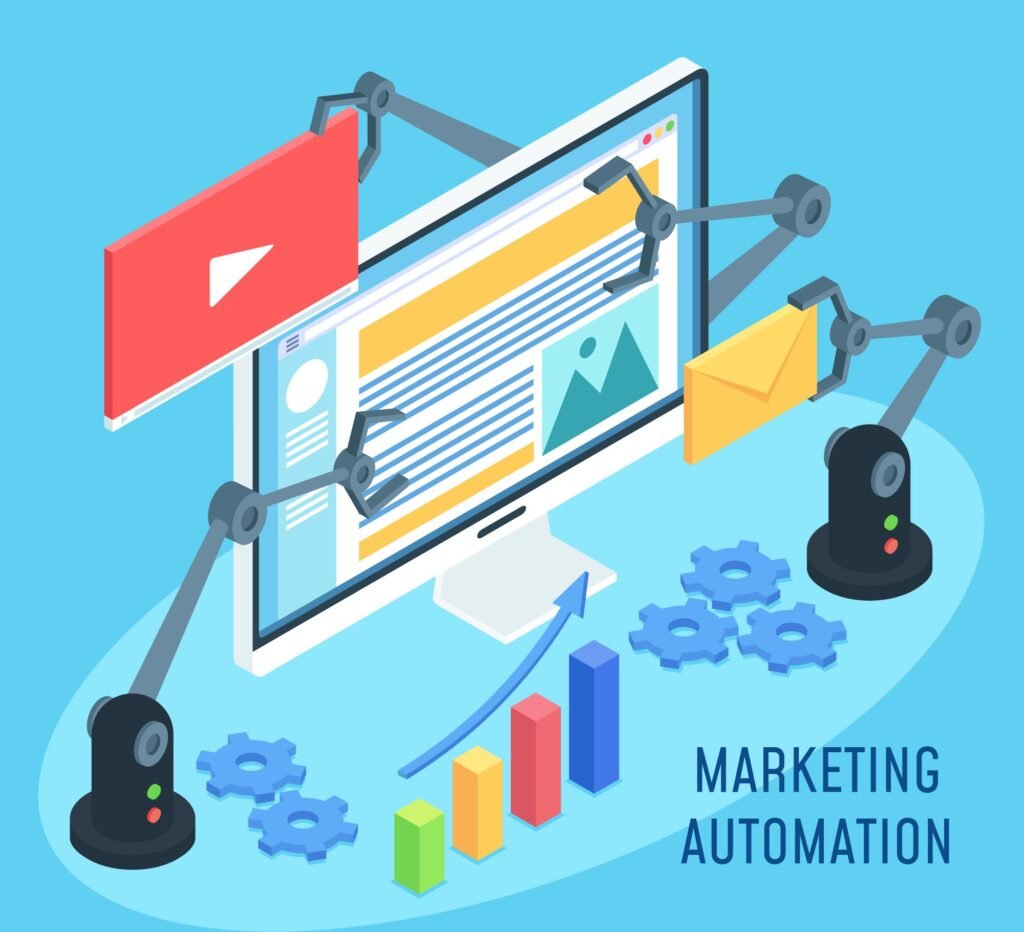Introduction
In today’s fast-paced business landscape, automation is revolutionizing the way B2B companies operate. From streamlining workflows to enhancing customer engagement, automation is not just a luxury—it’s a necessity for sustained growth. As companies face increasing competition, leveraging automation can provide a significant edge, enabling businesses to improve efficiency, reduce costs, and enhance decision-making.
Whether you’re a small business looking to scale or an established enterprise seeking to optimize operations, automation offers a wealth of benefits. In this blog, we will explore how automation can maximize B2B growth, the key areas where it can be implemented, and the best strategies to ensure seamless integration into your business processes.
The Role of Automation in B2B Growth
B2B companies operate in complex environments where efficiency and precision are critical. Unlike B2C businesses that cater directly to consumers, B2B organizations deal with longer sales cycles, multiple decision-makers, and intricate supply chains. This complexity makes automation even more valuable, as it can streamline various aspects of operations, including marketing, sales, customer service, and logistics.
Automation plays a pivotal role in:
- Enhancing Productivity: Reducing manual tasks frees up time for strategic decision-making.
- Improving Accuracy: Automated systems minimize human errors in data entry, reporting, and analytics.
- Boosting Lead Generation: Automated marketing tools nurture leads effectively and improve conversion rates.
- Scaling Operations: Businesses can expand without adding significant labor costs.
- Improving Customer Relationships: AI-powered chatbots and CRM automation enhance customer interactions.

Key Areas Where B2B Companies Can Leverage Automation
1. Marketing Automation for Lead Generation and Nurturing
Marketing automation is one of the most impactful ways B2B companies can grow. With long sales cycles and multiple touchpoints, B2B marketers need to engage prospects consistently. Automated email marketing campaigns, chatbots, and personalized content distribution ensure potential customers receive relevant information at the right time.
Some key marketing automation tools include:
- Email marketing platforms like HubSpot and Mailchimp for personalized engagement.
- Chatbots for instant customer interaction and lead qualification.
- Social media automation for scheduling posts and analyzing performance.
- Lead scoring systems that prioritize high-quality prospects.
2. Sales Process Optimization Through Automation
Sales automation reduces the administrative burden on sales teams, allowing them to focus on closing deals rather than managing paperwork. CRM (Customer Relationship Management) software like Salesforce and Zoho CRM help businesses track interactions, set follow-up reminders, and automate responses.
Key benefits include:
- Automated lead assignment ensures prospects reach the right salesperson.
- Follow-up email automation maintains consistent communication.
- Proposal and contract automation speeds up deal closure.
- Predictive analytics assist in identifying promising sales opportunities.
3. Customer Support and Engagement Automation
Providing exceptional customer service is essential for B2B companies, and automation makes it easier to manage support tickets, respond to inquiries, and offer self-service options. AI-driven chatbots, automated ticketing systems, and knowledge bases empower customers while reducing strain on support teams.
Examples of automation in customer support include:
- Chatbots for instant query resolution available 24/7.
- Automated ticket routing to assign issues to the right department.
- Self-service portals that provide FAQs and troubleshooting guides.
- Follow-up emails and surveys to gauge customer satisfaction.
4. Accounting and Financial Automation
Managing finances manually can be time-consuming and prone to errors. Automation tools in finance simplify invoicing, expense tracking, payroll, and tax calculations. Software like QuickBooks and FreshBooks ensure that financial processes are handled efficiently, allowing B2B companies to focus on growth.
Key advantages include:
- Automated invoice generation to ensure timely payments.
- Expense tracking tools that categorize spending automatically.
- Recurring billing automation for subscription-based services.
- Financial reporting and forecasting powered by AI analytics.
5. Supply Chain and Inventory Management Automation
For B2B companies dealing with manufacturing, distribution, or wholesale, supply chain automation is essential. From inventory tracking to order fulfillment, automated systems enhance efficiency and reduce operational costs.
Common automation solutions include:
- AI-driven demand forecasting to prevent stock shortages.
- Inventory management software that updates stock levels in real-time.
- Automated order processing to reduce delays.
- Logistics automation for optimized delivery tracking.
How to Successfully Implement Automation in B2B Companies
While automation offers numerous advantages, successful implementation requires careful planning. Here are key steps to ensure a smooth transition:
1. Identify Areas That Need Automation
Before adopting automation tools, conduct an internal audit to determine which processes consume excessive time and resources. Focus on repetitive tasks, bottlenecks, and areas prone to human errors.
2. Choose the Right Automation Tools
Select automation software that aligns with your business goals and integrates seamlessly with existing systems. Consider factors like ease of use, scalability, and customer support when making a choice.
3. Train Employees and Encourage Adoption
One of the biggest challenges in automation is employee resistance. Provide training sessions and demonstrate how automation will enhance their productivity rather than replace jobs.
4. Monitor Performance and Optimize
After implementation, track key performance indicators (KPIs) to measure the impact of automation. Regularly refine automated processes based on feedback and changing business needs.

5. Ensure Data Security and Compliance
With increasing concerns about cybersecurity, ensure that your automation tools comply with data protection regulations such as GDPR and CCPA. Secure sensitive customer and business data with encryption and access controls.
Overcoming Common Challenges in B2B Automation
While automation has immense potential, businesses may encounter obstacles during implementation. Here’s how to address common challenges:
- High Initial Costs: Start with small automation projects before scaling up.
- Integration Issues: Choose software that offers seamless integration with existing tools.
- Employee Pushback: Highlight automation’s role in reducing workload rather than replacing jobs.
- Data Management Complexity: Use AI-driven analytics to organize and interpret data effectively.
Why Automation is the Future of B2B Growth
Automation is no longer optional—it’s a strategic necessity for B2B companies aiming for sustainable growth. As technology evolves, businesses that fail to embrace automation risk falling behind competitors who leverage it to enhance efficiency, customer engagement, and profitability.
By implementing automation across marketing, sales, customer support, finance, and supply chain management, B2B companies can unlock new levels of productivity and scalability. The key to success lies in choosing the right tools, training employees, and continuously optimizing automated processes.
Investing in automation today will position your business for long-term success, enabling you to focus on innovation, customer relationships, and market expansion. The future of B2B belongs to those who harness the power of automation to drive growth and stay ahead of the competition.








Leave a Reply